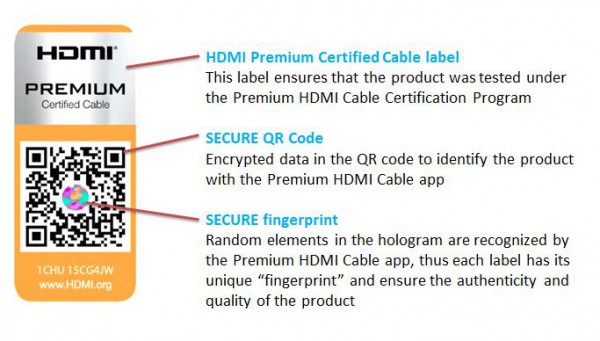Premium HDMI Cable Certification Program ensures 4K support, prevents counterfeiting

Since HDMI cables are digital, it is arguably pointless to invest in "premium" variants from so-called high-end brands like Monster. With that said, there is value in buying something that is well-made. Not all cables are capable of handling UHD 4K content, however, so some HDMI cables are better than others (always buy high speed rather than standard speed as the price difference is negligible).
Apparently, both counterfeit and misleading cables are an issue, as the Premium HDMI Cable Certification Program has been created. This will ensure that cables being marketed as HDMI 2.0 and 4K Ultra HD are truly capable of their promised performance.
"The Program includes a best-practices design note and an expanded set of cable testing requirements. Under this program, Participants will test their HDMI cables at an HDMI Authorized Testing Center (ATC) to certify that their HDMI cables can reliably support the full 18Gbps bandwidth of the HDMI 2.0 Specification, which is what is typically needed for the most advanced video formats such as 4K/UltraHD, a wide color gamut, and High Dynamic Range (HDR). The Program also incorporates new testing guidelines for EMI levels to minimize unwanted interference with wireless signals in today’s connected devices", says HDMI Licensing LLC.
The organization further explains, "these cables will carry a tamper-proof, anti-counterfeit label to differentiate them from other HDMI cables. A mobile app that scans the label will allow manufacturers, distributors, retailers, and consumers to confirm the authenticity of Premium High Speed HDMI Cables".

While this program is appreciated, manufacturers and sellers are not required to participate. Quite frankly, getting a cable certified with a special sticker will likely add to the overall cost. In other words, inexpensive Chinese-made HDMI cables should continue to flood Amazon and other retailers, and consumers will likely choose a lower price over a certification sticker.
Do you think this program is worthwhile, or an unnecessary exercise that will ultimately lead to more expensive cables for consumers? Tell me in the comments.
